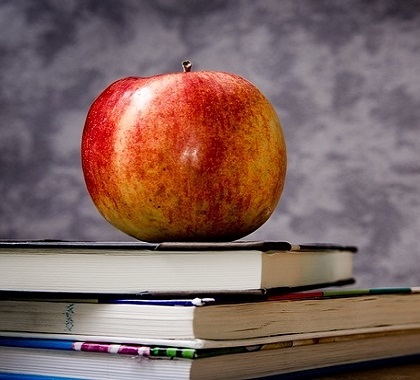A new report from EdChoice reveals that the Indiana Choice Scholarships Program, which currently serves over 35,000 students, has “generated cumulative net savings to state and local budgets” of $691 million over the life of the program. This equates to $1,100 saved per voucher student.
In Fiscal Year 2015, the last year available in the audit, “the average amount of the awards was $3,867 per scholarship, and the total cost to fund vouchers was $112,707,446,” the report noted. “The analysis for Indiana’s program assumes 21 percent of students in the program are not switchers (i.e. students who would enroll in a private school anyway if the program was not in place). This implies that 22,910 students were switchers. With an estimated average variable cost of $6,327 per student, this enrollment shift generated $144,965,088 in savings. Thus, the net impact in FY 2015 was $32,257,642, or $1,107 in savings per student who participated in the program that year.”
“Although public schools experience revenue declines when students leave them to participate in school choice programs, it is also true that schools experience relief from the costs to educate them,” the authors concluded. “When school choice critics claim these programs ‘drain’ resources from public schools, they tend to focus on the revenue side of the coin while ignoring the cost side. Whether intentionally or not, today’s school choice programs are designed in ways that generate cost savings for taxpayers. In essence, this occurs primarily because the cost of voucher awards is typically set at significantly lower levels than the cost to educate students in district schools.”
“No fiscal analysis of any voucher programs in the United States that accounts for both costs and savings—including this one—has found that students exercising choice through voucher programs results in a net negative fiscal impact on taxpayers,” the authors also note.
According to a 2018 survey from Education Next, the majority of Americans are in favor of school vouchers. The survey revealed 54 percent of Americans support a universal school voucher program. The 54 percent support for vouchers is a 9 percentage point increase from the 2017 survey results. Furthermore, 67 percent of Hispanics, 53 percent of blacks, and 47 percent of Democrats said they support school vouchers. Disapproval of vouchers dropped to 31 percent overall. EdChoice’s December 2017 Schooling in America survey had similar results: Sixty-two percent of respondents said they support voucher programs.
The increased support for voucher programs is not surprising. Copious empirical research shows these programs, and other school choice programs, offer families improved access to high-quality schools that meet their children’s unique needs and circumstances. Additionally, these programs benefit public school students and taxpayers by increasing competition, decreasing segregation, and improving civic values and practices.
Indiana policymakers have displayed great leadership on the private school choice issue, as demonstrated by the sheer size and success of the Choice Scholarships Program. However, only about half of Hoosier State students qualify for the program. By implementing a universal voucher program, we can make sure every Indiana child has the opportunity to attend a quality school, and doing so at less cost to taxpayers than the current public school monopoly.
The following documents provide more information about voucher programs and private school choice.
Fiscal Effects of School Vouchers: Examining the Savings and Costs of America’s Private School Voucher Programs
https://www.edchoice.org/wp-content/uploads/2018/09/Fiscal-Effects-of-School-Vouchers-by-Martin-Lueken.pdf
In this EdChoice study, Director of Fiscal Policy and Analysis Martin F. Lueken examined the fiscal impact of voucher programs across America—from their inception through fiscal year 2015—to determine whether they generated costs or savings for state and local taxpayers. Lueken found these programs generated cumulative net savings to state and local budgets of $3.2 billion. This represents a $3,400 savings per voucher recipient.
The School Voucher Audit: Do Publicly Funded Private School Choice Programs Save Money?
http://www.edchoice.org/wp-content/uploads/2015/07/The-School-Voucher-Audit-Do-Publicly-Funded-Private-School-Choice-Programs-Save-Money.pdf
This report by Jeff Spalding of EdChoice provides a program-for-program breakdown of school voucher costs and savings. On the whole, Spalding says these programs have provided a cumulative savings of $1.3 billion since 2007, or roughly $3,400 per pupil.
A Win-Win Solution: The Empirical Evidence on School Choice (Fourth Edition)
http://www.edchoice.org/wp-content/uploads/2016/05/A-Win-Win-Solution-The-Empirical-Evidence-on-School-Choice.pdf
This paper by EdChoice details how a vast body of research shows educational choice programs improve academic outcomes for students and schools, saves taxpayers money, reduces segregation in schools, and improves students’ civic values. This edition brings together a total of 100 empirical studies examining these essential questions in one comprehensive report.
Education Savings Accounts: The Future of School Choice Has Arrived
https://heartland.org/publications-resources/publications/education-savings-accounts-the-future-of-school-choice-has-arrived
In this Heartland Policy Brief, Policy Analyst Tim Benson discusses how universal ESA programs offer the most comprehensive range of educational choices to parents, describes the six ESA programs currently in operation, and reviews possible state-level constitutional challenges to ESA programs.
Ten State Solutions to Emerging Issues
https://heartland.org/publications-resources/publications/ten-state-solutions-to-emerging-issues-2018
This Heartland booklet explores solutions to the top public policy issues facing the states in 2018 and beyond in the areas of budget and taxes, education, energy and environment, health care, and constitutional reform. The solutions identified are proven reform ideas that have garnered significant support among the states and with legislators.
Competition: For the Children
https://heartland.org/publications-resources/publications/competition-for-the-children
This study from the Texas Public Policy Foundation claims universal school choice results in higher test scores for students remaining in traditional public schools and improved high school graduation rates.
The Public Benefit of Private Schooling: Test Scores Rise When There Is More of It
https://object.cato.org/sites/cato.org/files/pubs/pdf/pa830.pdf
This Policy Analysis from the Cato Institute examines the effect increased access to private schooling has had on international student test scores in 52 countries. The Cato researchers found that a 1 percentage point increase in the share of private school enrollment would lead to moderate increases in students’ math, reading, and science achievement.
The Societal Impacts of Private School Choice around the World
http://scholarworks.uark.edu/cgi/viewcontent.cgi?article=4215&context=etd
This doctoral dissertation from Corey A. DeAngelis of the Cato Institute concludes that the causal evidence on private schooling and private school choice programs worldwide that access to them has positive effects on student achievement and non-cognitive skills, increases student effort on standardized testing, and can possibly decrease the proclivity for adult criminal behavior in students.
The Chile Experiment: Comparing Chile’s Free School Choice Model with Quasi-Monopoly Educational Systems in Latin America on Academic Outcomes and School Segregation
https://www.edchoice.org/wp-content/uploads/2018/05/The-Chile-Experiment-by-Mariano-Narodowski.pdf
This report from EdChoice examines the available achievement and segregation data of Chile’s school choice-based system compared to Latin American countries with similar socioeconomic structures and common educational histories, but with traditional education systems.
Protecting Students with Child Safety Accounts
https://heartland.org/publications-resources/publications/protecting-students-with-child-safety-accounts
In this Heartland Policy Brief, Vicki Alger, senior fellow at the Independent Women’s Forum and research fellow at the Independent Institute, and Policy Analyst Tim Benson detail the prevalence of bullying, harassment, and assault taking place in America’s public schools and the difficulties for parents in having their child moved from a school that is unsafe for them. Alger and Benson propose a Child Safety Account program, which would allow parents to immediately have their child moved to a safe school—private, parochial, or public—as soon as parents feel the public school their child is currently attending is too dangerous to their child’s physical or emotional health.
High School Options and Post-Secondary Student Success: The Catholic School Advantage
http://digitalcommons.lmu.edu/cgi/viewcontent.cgi?article=2021&context=ce
This peer-reviewed study published in the Journal of Catholic Education finds that students who attended Catholic high schools had higher college GPAs, were more likely to graduate, and were more likely to graduate with a STEM degree. This Catholic school advantage is wide-ranging, benefiting many subgroups of students, including non-white, low-income, urban, and low-achieving students.
Nothing in this Research & Commentary is intended to influence the passage of legislation, and it does not necessarily represent the views of The Heartland Institute. For further information on this subject, visit School Reform News, The Heartland Institute’s website, and PolicyBot, Heartland’s free online research database.
The Heartland Institute can send an expert to your state to testify or brief your caucus; host an event in your state; or send you further information on a topic. Please don’t hesitate to contact us if we can be of assistance! If you have any questions or comments, contact John Nothdurft, Heartland’s director of government relations, at [email protected] or 312/377-4000.




